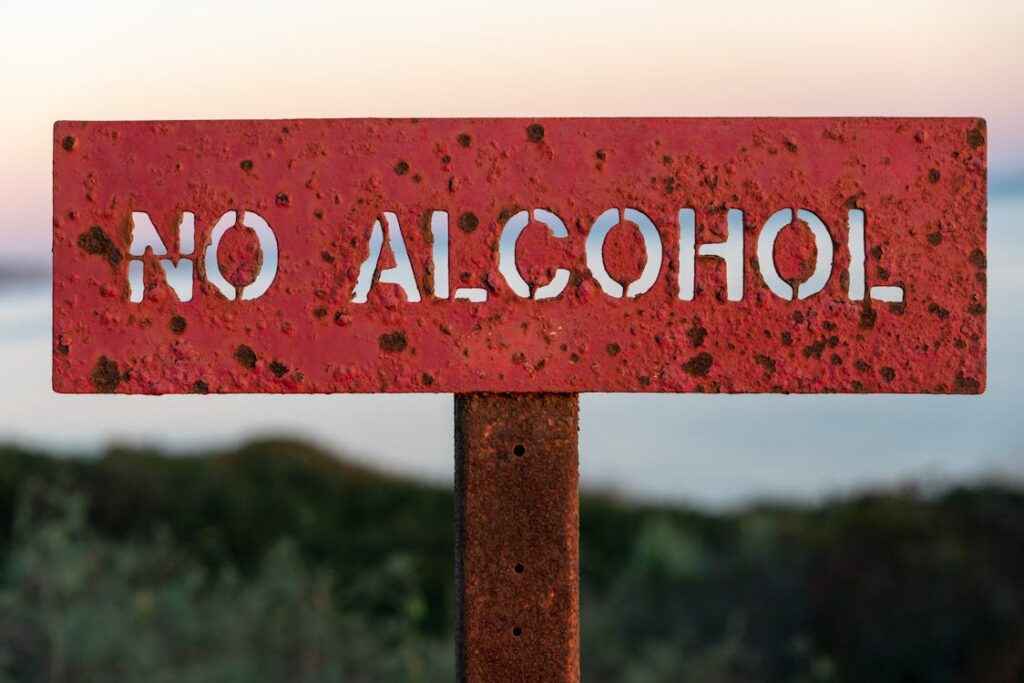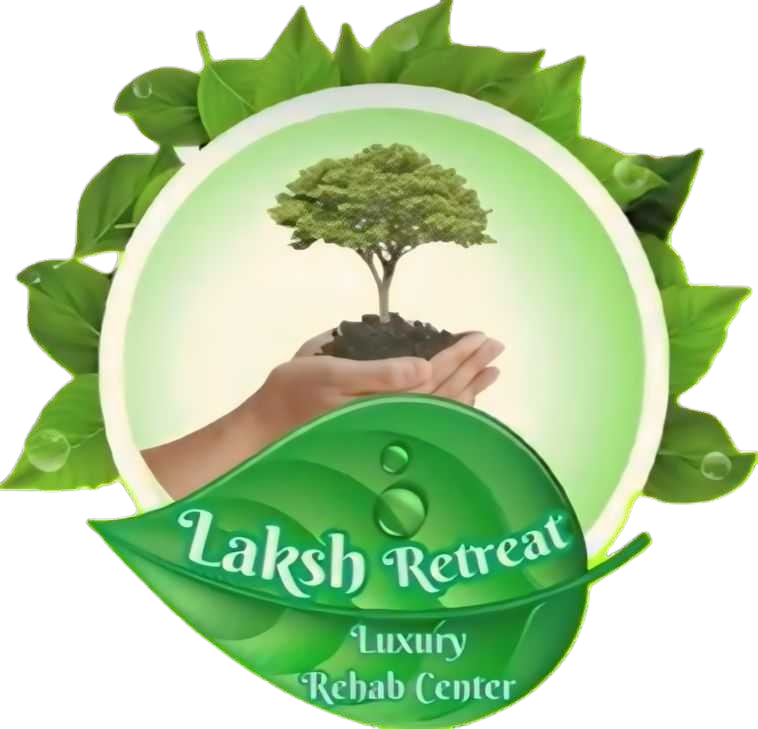Helping People Recover from Alcohol Addiction

व्यसनाला सोडून नवा मार्ग धरू, आरोग्यसंपन्न भारत घडवू
Alcohol addiction is one of the most widespread forms of substance affecting millions of lives every year. It can be a harmful cycle that causes immense personal and social harm, including damaged relationships, financial ruin, health issues, and a loss of personal dignity. Nevertheless, despite the challenges, recovery is possible. In fact, with the help of specialized treatment centers like Nasha Mukti Kendra and Vyasan Mukti Kendra, individuals can break free from the grip of alcohol addiction and reclaim their lives.
What Does Alcohol Addiction Mean?
Alcohol addiction,also known as alcoholism or alcohol dependence, this condition occurs when an individual develops a strong craving for alcohol, which leads to uncontrollable drinking. Specifically, this dependence happens when the body and mind adapt to the presence of alcohol, therefore making it difficult to stop drinking even when the consequences are harmful.
Alcohol addiction can occur for various reasons, including:
- Genetic Factors: Research has shown that addiction can run in families. If you have a family history of alcoholism, you may be more likely to develop an alcohol addiction.
- Psychological Factors: People with mental health issues such as depression, anxiety, or stress may turn to alcohol as a way of coping with emotional pain.
- Social and Environmental Factors: Peer pressure, a culture of drinking, or exposure to alcohol from a young age can increase the risk of developing alcohol dependence.
- Physical Dependence: Over time, the body may develop a tolerance to alcohol, requiring the individual to drink more to achieve the same effects. This leads to physical dependence, where withdrawal symptoms arise when alcohol consumption is reduced or stopped.
The Harmful Effects of Alcohol Addiction
Alcohol addiction doesn’t just affect the individual but also causes serious repercussions for families, communities, and society at large. Here are some of the most significant effects of alcohol addiction:
Health Issues
- Liver Damage: Chronic alcohol abuse can lead to fatty liver, cirrhosis, and liver cancer.
- Heart Disease: Alcohol increases the risk of high blood pressure, heart attacks, and cardiomyopathy (heart muscle weakening).
- Brain Damage: Prolonged alcohol use can cause memory loss, cognitive decline, and difficulty in decision-making.
- Cancer: Alcohol consumption is linked to cancers of the liver, mouth, throat, esophagus, and breast.
- Weakened Immune System: Alcohol reduces the body’s ability to fight infections.
- Pancreatitis: Alcohol can lead to inflammation of the pancreas, which can result in severe health complications.
Mental Health Issues
- Depression and Anxiety: Alcohol is a depressant, and long-term use can lead to or worsen mental health conditions such as depression and anxiety.
- Cognitive Decline: Chronic drinking can cause brain shrinkage and long-term memory problems.
- Increased Risk of Suicide: Alcohol addiction often correlates with an increased risk of suicidal thoughts and attempts, particularly in those with underlying mental health conditions.
Social Consequences
- Relationship Problems: Alcoholism often strains relationships with family, friends, and coworkers. The individual may become isolated due to their behavior or the shame they feel.
- Workplace Issues: Alcohol abuse leads to poor job performance, absenteeism, and job loss.
- Legal Problems: Drunk driving, domestic violence, and other alcohol-related offenses can lead to legal issues.
- Financial Strain: The cost of maintaining an alcohol addiction can be financially devastating, leading to debt and poverty.
CONSEQUENCES OF ALCOHOL ADDICTION
- Physical Consequences:
- Liver Damage: Chronic alcohol use can lead to liver diseases such as fatty liver, cirrhosis, and liver cancer.
- Heart Problems: Alcohol increases the risk of heart disease, including high blood pressure, heart attacks, and cardiomyopathy (weakening of the heart muscle).
- Brain Damage: Long-term alcohol abuse can cause memory problems, difficulty concentrating, and even brain shrinkage. It can lead to cognitive impairments.
- Cancer Risk: Alcohol consumption is linked to various types of cancer, including those of the liver, mouth, throat, esophagus, and breast.
- Weakened Immune System: Alcohol impairs the immune system, making individuals more susceptible to infections and illnesses.
- Digestive Issues: Chronic alcohol use can cause gastritis, ulcers, pancreatitis, and other digestive disorders.
- Kidney Damage: Alcohol can lead to kidney damage or kidney failure over time.
- Mental Health Consequences:
- Depression and Anxiety: Alcohol is a depressant, and excessive drinking can lead to mood disorders like depression and anxiety.
- Memory and Cognitive Decline: Alcohol addiction can significantly impact memory, decision-making, and overall cognitive function.
- Increased Risk of Suicide: Alcohol abuse can heighten suicidal thoughts and actions, especially in those already suffering from mental health issues.
- Social Consequences:
- Relationship Problems: Alcohol addiction often strains relationships with family, friends, and coworkers. It can lead to emotional distance, abuse, and conflict.
- Workplace Issues: Alcohol addiction can lead to poor performance at work, absenteeism, job loss, and professional instability.
- Legal and Financial Problems: Alcohol addiction often leads to poor decision-making, including legal troubles (like DUIs) and financial difficulties due to the cost of alcohol and the loss of income.
- Emotional Consequences:
- Guilt and Shame: Many people with alcohol addiction experience feelings of guilt, shame, and self-loathing due to the harm they cause themselves and others.
- Loss of Self-Control: Addiction takes away a person’s sense of control over their behavior, leading to impulsive actions and decisions.
- Isolation: Alcoholics may isolate themselves from loved ones due to shame or the desire to drink without interference.
- Impact on Families:
- Emotional Stress: Family members of those with alcohol addiction often experience emotional stress, anxiety, and uncertainty.
- Children of Alcoholics: Children may suffer from neglect, abuse, and emotional trauma, which can lead to issues in their own lives, including the development of addiction.
- Long-term Impact:
- Chronic Health Conditions: Prolonged alcohol addiction can result in long-term health complications, including cardiovascular disease, liver failure, and permanent brain damage.
- Death: In severe cases, alcohol addiction can lead to death, either through liver failure, overdose, accidents caused by impaired judgment, or suicide.
Treatment for Alcohol Addiction at Nasha Mukti Kendra and Vyasan Mukti Kendra
The path to recovery from alcohol addiction is not easy, but it is possible with the right treatment and support. Nasha Mukti Kendra and Vyasan Mukti Kendra provide structured programs and therapies that help individuals overcome addiction and rebuild their lives.
Detoxification Process
The first step in recovery at Nasha Mukti Kendra and Vyasan Mukti Kendra is detoxification. During this phase, the body is cleared of alcohol, and withdrawal symptoms are managed under medical supervision. This step is crucial for those with severe addiction, as withdrawal symptoms can range from mild discomfort to life-threatening conditions.
Medical professionals at these centers monitor the patient’s condition to ensure their safety. In some cases, medications may be prescribed to reduce withdrawal symptoms such as anxiety, tremors, and nausea.
Counseling and Therapy
Once detoxification is complete, patients begin therapy to address the psychological aspects of alcohol addiction. At this stage, Nasha Mukti Kendra and Vyasan Mukti Kendra use various forms of therapy to help patients understand the root causes of their addiction and develop healthier coping mechanisms.
- Cognitive Behavioral Therapy (CBT): CBT helps patients identify and change negative thought patterns that contribute to alcohol abuse. It also teaches patients how to cope with triggers and stressful situations without resorting to drinking.
- Behavioral Therapy: This therapy focuses on changing the behaviors that support the addiction, helping individuals develop new habits and responses to life’s challenges.
- Group Therapy: Group therapy sessions provide a platform for patients to connect with others who are going through similar struggles. As a result, sharing experiences and offering mutual support can be incredibly powerful in the recovery process.
- Family Therapy: Alcoholism affects not only the individual but also their family. Thus, family therapy helps loved ones understand addiction, rebuild relationships, and learn how to support their family member in recovery.
Holistic Treatments
In addition to traditional therapy, Nasha Mukti Kendra and Vyasan Mukti Kendra offer holistic treatments that support the mind, body, and spirit. These therapies include:
- Yoga and Meditation: Physical and mental relaxation practices such as yoga and meditation help patients manage stress, reduce cravings, and promote overall well-being.
- Nutritional Support: Alcoholism can deplete the body’s essential nutrients. Therefore, patients at these centers are provided with balanced, healthy meals to restore their physical health and energy.
- Art and Music Therapy: Creative therapies like art and music therapy offer patients an outlet for self-expression, helping them process emotions and heal from past trauma.
Life Skills Training
Recovery from alcohol addiction requires more than just overcoming the physical urge to drink; it also involves developing new life skills. To support this, Nasha Mukti Kendra and Vyasan Mukti Kendra offer life skills training that covers:
- Stress Management: Patients learn how to manage life’s stresses without relying on alcohol.
- Anger Management: Anger is a common trigger for many people with alcohol addiction. Thus, therapy focuses on healthy ways to manage anger.
- Improved Communication: Effective communication skills help patients rebuild relationships and handle difficult situations more effectively.
- Decision Making: Patients are taught how to make positive choices that support their long-term sobriety and personal growth.
Aftercare and Relapse Prevention
Recovery is a long-term process, and Nasha Mukti Kendra and Vyasan Mukti Kendra offer ongoing support even after the treatment program ends. To ensure continued success, aftercare services include:
- Follow-Up Counseling: Patients continue to receive counseling to address any challenges they face as they reintegrate into society.
- Support Groups: Participation in support groups like Alcoholics Anonymous (AA) provides a network of peers who can offer advice, support, and encouragement.
- Relapse Prevention: Patients are taught strategies to identify and cope with triggers that may lead to a relapse. This includes avoiding high-risk situations and building a strong support network.
The Role of Nasha Mukti Kendra in Alcohol Recovery
Nasha Mukti Kendra and Vyasan Mukti Kendra play a vital role in the recovery journey of alcohol addicts. Specifically, these centers offer structured programs that not only focus on detoxification and therapy but also provide continuous emotional support, medical care, and life skills training. Furthermore, they help individuals address the root causes of their addiction and ultimately equip them with the tools they need to live a healthy, sober life.
Why Choose Vyasan Mukti Kendra?
1. Comprehensive Treatment: Both centers offer a wide range of treatments that address the physical, emotional, and psychological aspects of addiction. In addition, these treatments are designed to provide a well-rounded approach to recovery.
2. Experienced and Qualified Staff: The staff at Nasha Mukti Kendra and Vyasan Mukti Kendra are experienced professionals dedicated to providing compassionate care and support. As a result, individuals can feel confident in the expertise they receive throughout their recovery journey.
3.Safe and Supportive Environment: These centers offer a safe and supportive environment where individuals can focus on their recovery without distractions or external pressures. Consequently, patients are able to make progress in a secure and nurturing setting.
4.Holistic Approach: The focus on holistic healing helps patients not only recover physically but also emotionally and mentally, making it easier to maintain long-term sobriety. Thus, the comprehensive care provided ensures that all aspects of a person’s well-being are addressed.
5.Aftercare Services: Recovery doesn’t stop once treatment is over. Nasha Mukti Kendra and Vyasan Mukti Kendra provide continuous support and resources to ensure patients maintain their sobriety. Therefore, individuals have ongoing guidance to help them navigate life after treatment and sustain their progress.
Conclusion
Alcohol addiction is a serious issue; however, with the right treatment and support, recovery is possible. For instance, if you or a loved one is struggling with alcohol addiction, seeking help from a Nasha Mukti Kendra can make a significant difference. Vyasan Mukti Kendra can be the first step toward healing and a brighter, sober future. In addition, with a comprehensive treatment plan, experienced professionals, and ongoing support, these centers can help you break free from the chains of addiction and live a healthier, happier life.
Moreover, if you’re ready to take the first step, reach out to a Nasha Mukti Kendra or Vyasan Mukti Kendra today. Remember, you don’t have to face this journey alone.


